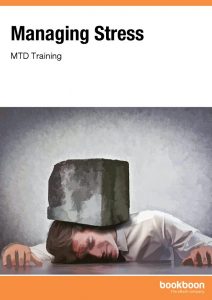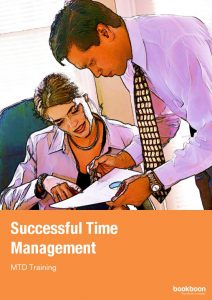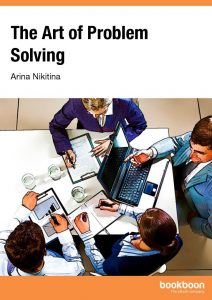What is personal development?

Almost as if the clue is in the name, personal development is a very personal journey. The skills one individual would like to improve or develop won’t be the same as those of the next person. Let’s look at some of the most common personal skills people look to develop.
Tip: Click on the pictures of our eBooks throughout the article for more bite-sized lessons on personal development.
Personal development and confidence
Confidence, both at work and in personal life, is one of the most sought-after skills people look to develop. When it comes to personal development, confidence is a fantastic place to start. Many of us, upon meeting someone who exudes confidence and charisma, tend to think, ‘Why can’t I be like that?’ Sure, we are confident in front of our family and friends, but put us in a high-pressure situation like a party or worse — a job interview and our palms are sweating.
The truth is, that outgoing, self-assured individual likely feels just as shy and unsure as the rest of us at times.
3 quick confidence-boosting tips
Affirmations and self-talk:
Talk to yourself in the mirror. Seriously! Do it. Remind yourself out loud of a few things you want to remember — even if it feels silly.
Change your words:
You will be shocked at how much strength behind a message can be gained by taking out a few common words we use when we don’t feel secure.
For example: ‘Just’ ‘try’ and ‘could’ are a dead giveaway. Instead of saying ‘I was just thinking it could work’ or ‘I will try to complete that by tomorrow.’
Try: ‘I’m confident this will work.’ or ‘I will get that done as soon as possible.’
Be affirmative. Learn to say no:
Many of us have a hard time with this one. We end up taking on more than we can handle both at work and in our personal lives because we are afraid to say no. Try saying no with an explanation. ‘I won’t be able to do that this week because I have too much on.’
Developing your stress-management 
These days stress is as much a part of being human as eating, breathing, and Tweeting. It seems that our expectations, both of ourselves and from others, are higher than ever before and the need to do ”more” with ”less” is a fact of life. Trying to balance work and social lives can leave us altogether frantic, stressed and anxious. We may not be able to control the events that happen to us but we can certainly manage the meaning and the impact that they have upon us.
3 tips to be stress-free
Get more sleep!
This might seem obvious but according to Centres for Disease Control and Prevention, one in three adults don’t get enough sleep. Get yourself organised for the next day in the evening, eat at least 2 hours before you go to sleep and put away your phone or computer an hour before bed. According to a 2018 Harvard University health letter, the blue light emitted from our phone and computer screens has a negative effect on our ability to fall asleep.
Exercise or meditate:
So many of us find ourselves in the ‘work to bed cycle’ which is about as much fun as it sounds. We wake up, go to work, head home and get into bed. Hopefully squeezing some sort of social life or family time into the few hours we have free. What so many of us forget to do is to take care of our minds and bodies. Exercise or meditation (even 15 minutes a day) has been proven time and time again to lower stress levels. Setting a few minutes aside to exercise can also provide you some likely much needed ‘me time’.
Connect with people:
As much as spending some time alone is great for our stress levels, it is also important to connect with friends and family. Try to allocate some time to catch up with a friend or sit down with a partner and talk about something other than your stressors.
Time-management: one of the hardest skills in personal development 
If you just read the previous section of this article and thought ‘Where does this blogger think I’m supposed to find the time for all of that?’, you may benefit from a lesson in time management.
Manage your time with these tips
Write down your goals:
Decide on some long and short-term goals and put them into writing. Think ‘What do I need to accomplish today, this week and this year?’ Then schedule time for yourself to work in towards those goals.
Time management is space management: Organise your workspace
An organised desk means fewer distractions and increases productivity.
Plan your day
Having no objectives for the day will likely lead to a matching set of results. So, plan what you mean to achieve, evaluate progress during the day and measure results at the end of the day.
Personal development and problem-solving
Problem-solving is something most of us face at least once a day both in the workplace and in our personal lives. Whether solving a problem for a client, guiding other people or discovering new, creative ways to improve certain aspects of your own life, problem-solving is a fundamental success skill.
Being a confident decision-maker, feeling in control of the situation, and channeling other people’s support and energy comes from having a sound problem-solving process.
Try these 4 steps:
- Define the problem. Is there a problem? What is the issue? What are the causes?
- Identify a few solutions to the problem. Giving yourself various solutions will make the decision-making process easier.
- Evaluate and choose. What is the best solution for both the short and long term?
- Implement your decision and solve your problem.
Your personal development is something that will continue throughout your whole life – and that’s a good thing! Personal development means learning, growing and changing. For more tips on personal development click through the books throughout this article! Or download them here:







